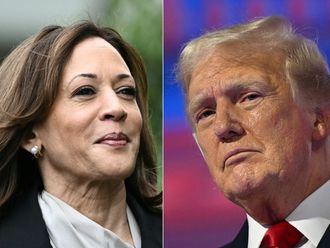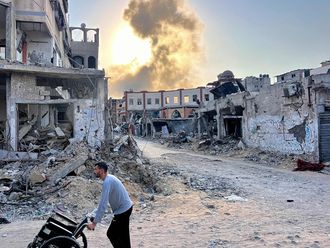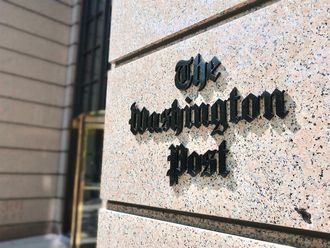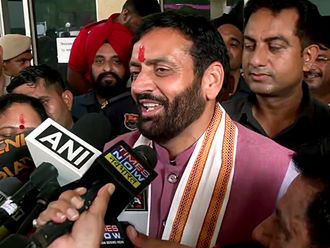Pakistan and India became independent in 1947 as separate countries due to the deep rooted mistrust between the two major communities which has complicated their relations since then. When both countries became nuclear powers the resulting strategic stability raised hopes for improved relations. The peace process between India and Pakistan which began in 2004, provided a structure to tackle core problems, improved the atmospherics and led to incremental advances through Confidence Building Measures (CBMs).
The terrorist attack on Mumbai was immediately condemned by Pakistan. Due to shock and anguish suffered, India's temporary freezing of the peace process was understandable. A year later however the situation has worsened. India's Army Chief, General Deepak Kapoor has warned that limited war under a nuclear overhang is now possible in South Asia. The danger is that such interventionist assertions may again make the region a nuclear flashpoint.
A number of questions arise. Is Pakistan doing enough to assuage Indian concerns after Mumbai? Does this deadlock serve India's stated objectives and if not then what are they? Is the international community playing its part in defusing the situation? Is another Mumbai possible, and if so, how best to avert it?
Pakistan wants friendly relations with India, resolving all disputes peacefully, to concentrate on socioeconomic development. Contrasting with India's reluctance to share its findings of the Samjhota Express train blast in which more than 40 Pakistanis died in 2007, Pakistan initiated a comprehensive investigative/judicial process despite India's piecemeal sharing of information. The Anti-Terrorism Court has declared 20 accused as proclaimed offenders and hearings of 7 held accused are proceeding.
India demands that Pakistan do more, as if the daily terrorist attacks killing hundreds of Pakistanis, dwarfing Mumbai by far, could be turned off at will. US Secretary of State Hillary Clinton acknowledged that America created this situation by bringing extremists from around the Muslim world to dislodge the USSR from Afghanistan, then deserted that country. Afghanistan's occupation by foreign forces has exacerbated extremism.
India itself cannot fully eradicate its indigenous terrorist/extremist movements. Would it ban at Pakistan's request the powerful RSS and the BJP whose leaders stand indicted for Babri Masjid's destruction? As long as India denies Kashmiris their Security Council right to self-determination, and does not improve the lot of its own disaffected communities, it provides oxygen for extremism in both countries.
There has been consistent evidence that India's intelligence agencies, through Afghanistan, are fuelling dissident movements in Balochistan and FATA areas. Some evidence to this effect was handed over to India during the Joint Anti-Terrorism Mechanism meetings. Pakistan Army's DG ISPR recently stated such evidence had been found during the ongoing FATA operations. Pakistan's Foreign Minister Shah Mahmoud Qureshi said last week that this was the case and the evidence is being compiled. Pakistan Prime Minister Yousuf Raza Gilani has stated twice this week that Pakistan will share this evidence with India and others at an appropriate time. In my view Pakistan should widely publicise this evidence. India's strategic planners are motivated by one of two objectives. The maximalist position is that Pakistan should now, by using the Mumbai attack, be internationally isolated, internally weakened and accept Indian domination.
The alternate would be taking at face value Indian PM Manmohan Singh's statements that India wants good relations with a stable Pakistan and that war is not an option. In Pakistan there is a belief in his sincerity. However, actions on the ground strain this act of faith. Is another Mumbai possible? Despite best efforts by both countries no guarantee can be given. The only certainty is that the continued bilateral deadlock only encourages and strengthens extremist elements. Twice very recently India has declared imminent a terrorist threat from Pakistan but when asked to share that information to enable Pakistan to check and counter if necessary, has refused.
If another Mumbai occurs, indigenous or not, there is a danger that India may declare it emanating from Pakistan and use that for misguided adventurism. Economically resurgent and now most favoured by America and the West, India now rides very high. It believes that Pakistan is now down and out. This is a miscalculation. Pakistan may be down but cannot be counted out. It certainly needs to continue to tackle terrorism robustly and work for internal political stability. It however possesses a resilient population, capable Armed Forces and nuclear assets which would make any adventurism a grave mistake.
The international community perceives the dangers of the present situation but plays a hesitant and indecisive role. Prior to his election, US President Barack Obama committed to a Special Envoy for the region whose mandate included encouraging a resolution of the Kashmir dispute. Indian pressure made him resile. He was similarly compelled to backtrack on his recent praise for China. What is the way forward? If India's objective is to destabilise and weaken Pakistan, the consequences would be counterproductive for India itself.
Pakistan has repeatedly called for a resumption of the peace process and its structured composite dialogue which includes security talks by the Home Secretaries and anti-terrorism cooperation under the Joint Anti-Terrorism Mechanism. The public in Pakistan is weary and feels that it is now for India to respond. India should take the initiative for restarting the peace process to provide an environment for better relations, dispute settlement and real time counterterrorism information sharing which would be the best option for averting another Mumbai. India has to decide.
Ambassador Tariq Osman Hyder was Pakistan's first Head of Delegation to the Joint Anti-Terrorism Mechanism with India and is presently on the Faculty of the National Defence University, Islamabad. The opinions expressed are his own.








